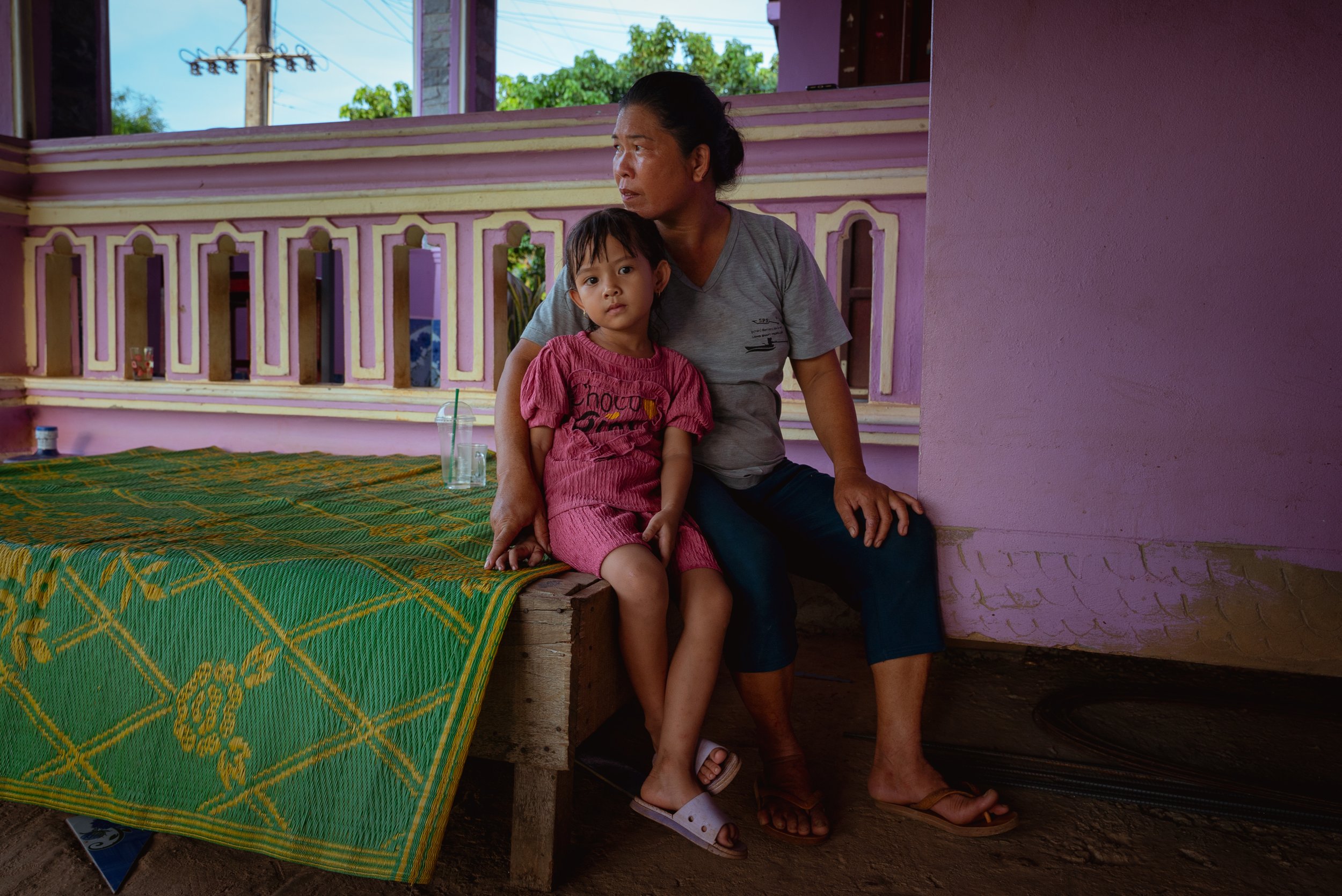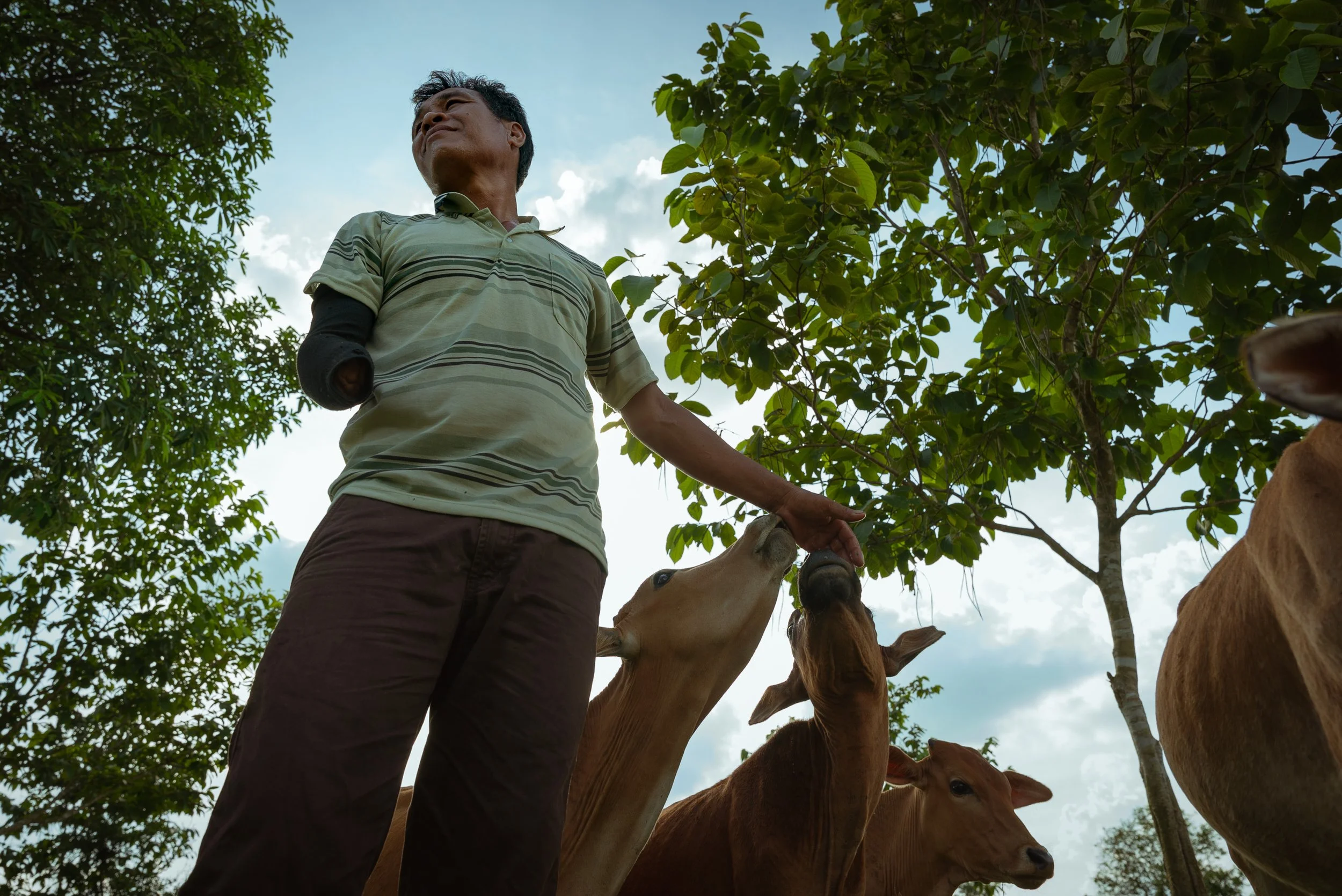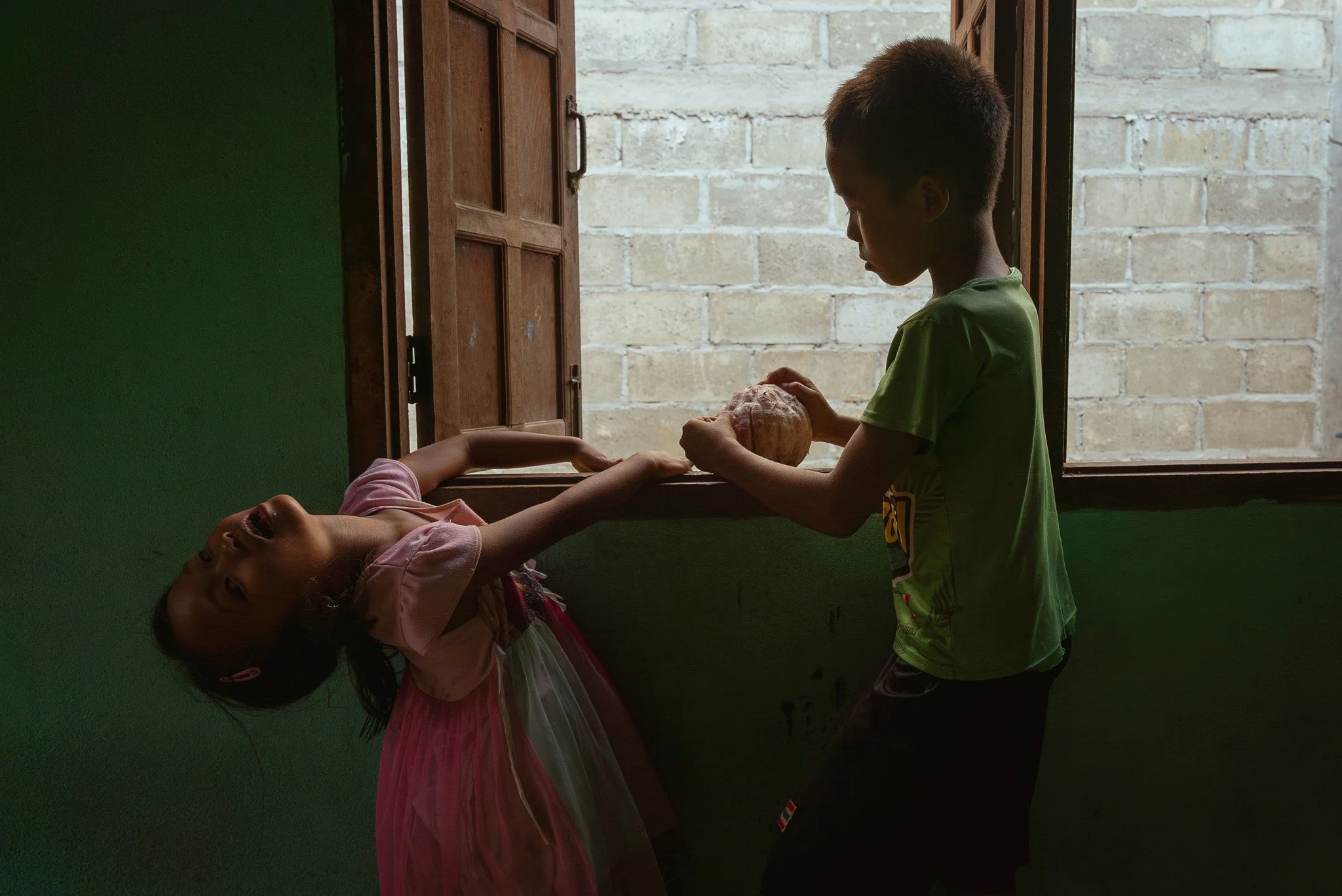
One day, five children went out to play. Only three came back.
Laos is the most heavily bombed country in the world: an oft forgotten legacy of the Vietnam war. As part of anti-communist operations, between 1964 and 1973, the US dropped an average of one planeload of bombs every eight minutes for almost a decade, the majority of which remain a live threat to this day. The US called this a ‘Secret War’: Laos was technically a neutral country. While Lao government support is offered directly to survivors, unexploded munitions have wide-reaching social implications that remain unacknowledged and unaddressed. Around half of all victims are children. The majority of adult survivors are men, leaving women to shoulder not only traditional domestic and care roles but the family’s economic burden largely by themselves. This short film and documentary photography series visualises the longstanding, unseen toll of unexploded ordnance on survivors in rural Laos.
Short film officially selected for the Asian Film Festival, International Social Change Film Festival, Asia South East Short Film Festival, and was awarded an honourable mention at the Los Angeles Documentary Film Festival. Shot and produced for UNDP.
Film credits
Producer & Editor | Mailee Osten-Tan
Director of Photography | Nicolas Axelrod
Animator | Ian Hamden
Sound Designer | Tada Mitrevej
Translators | Mouthita Phonephetrath & Wanna Lassamee

In 2016, Lom and his brother-in-law had set up camp in a forest in Attapeu province where they were lumbering timber. Lom was cooking food on an open fire when a sudden blast hit him, coming from the earth directly beneath him.
Under the hot, midday sun, Lom’s wife Bua rakes the ground to get rid of the weeds growing in and around the cassava she has planted. She is now the main breadwinner of the family.

82-year-old Bounhueng watched the first US bombs fall on Laos. “At first, it was like clockwork,” he said. “The planes dropped every day at the same time. We could prepare. But then towards the end of the war, things got scarier. The bombs were dropped randomly, both day and night. One day, I saw the bombs come down and I couldn’t get to the shelter so I just sat down on the ground and prayed for my life to be spared.”
Supah’s mother cradles her baby as other members of their family watch. Many other women in the village worry that their children could be the next victim in a UXO incident.
Supah, aged 9, still has shrapnel left inside his stomach from a bombie he and his friends mistook for a petanque ball.

Layoud and his sister eat a pomelo inside their home. Layoud is partially deaf as a result of a bombie explosion. He continues to mourn the loss of two of his best friends, leading his mother Lae to worry about how the incident will continue to affect her son’s mental health in the future.
Layoud’s mother, Lae, farming in their rice field.










